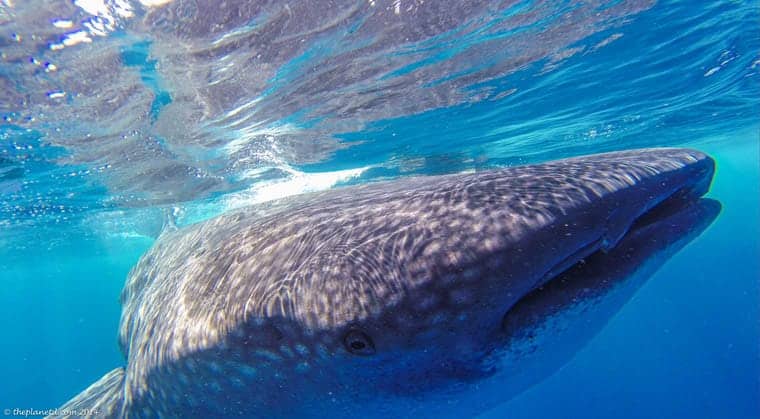Summary
Swimming with Whale Sharks Cancun
They may be the biggest fish in the sea, but whale sharks are gentle giants. Growing to lengths of over 12 meters (40 feet), whale sharks are impressive to see. Just two hours off the coast of Cancun, you can see them if you go at the right time of year.
When to Swim with Whale Sharks
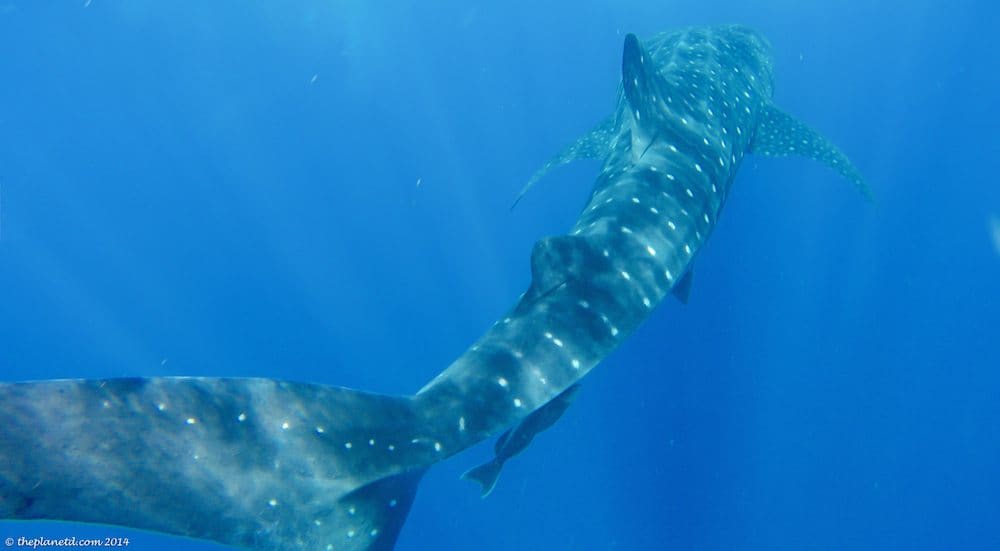
You can swim with whale sharks around Isla Mujeres on day trips from Cancun from June to September. We made it to Cancun just in the nick of time. Whale shark tours were closing down for the season the week we were in Mexico, and we only had one day to get out to the open Caribbean Sea. If the weather turned bad, we would miss our chance.
Swimming with Whale Sharks: The Tour Experience
We were picked up early in the morning from our apartment in Playa del Carmen to be shuttled to Cancun. We were sure we would have to walk to another location for the shuttle, but it turns out the El Taj Villas works exactly like a hotel.
All we had to do was walk out our front door and wait on the street from our seaside village. Nice!
Note: The best time to swim with whale sharks in the Yucatan is between June and September.
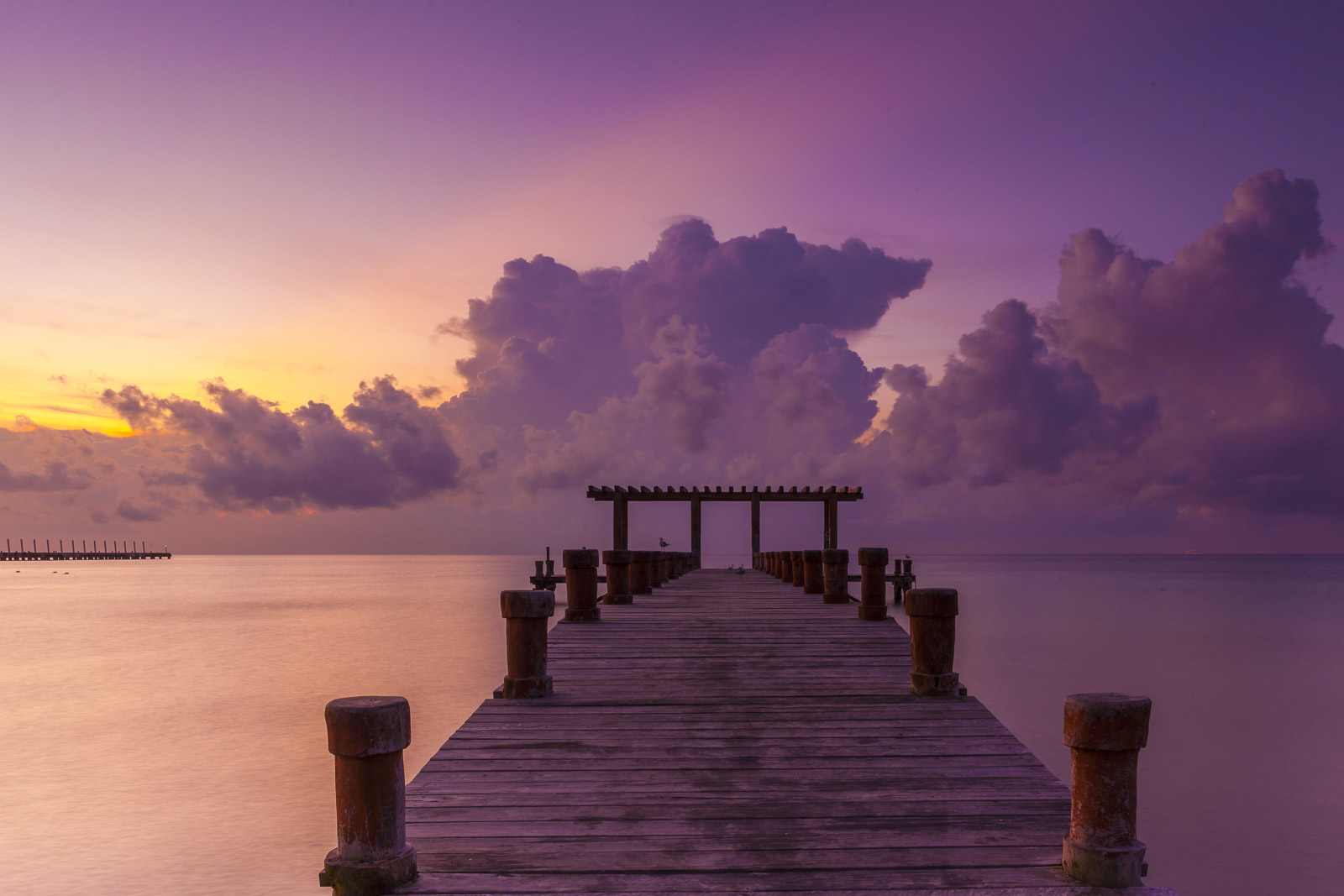
Traveling to the Whale Shark Migration Area
One thing about Playa del Carmen and Cancun is that everything is spread out. We often find ourselves driving up and down Hwy 307 no matter which town we’re staying in to take part in day trips to the surrounding attractions along the Mayan coast and the Yucatan Peninsula. It’s crucial to be prepared to drive an hour or two when booking your trip to swim with whale sharks or any other tour out of Playa.
By the time we reached the harbor to catch our boat, the sun was shining, and the air was hot. We couldn’t wait to get on the boat to feel the cool sea air and see those sharks!
Arriving at the Snorkeling Site
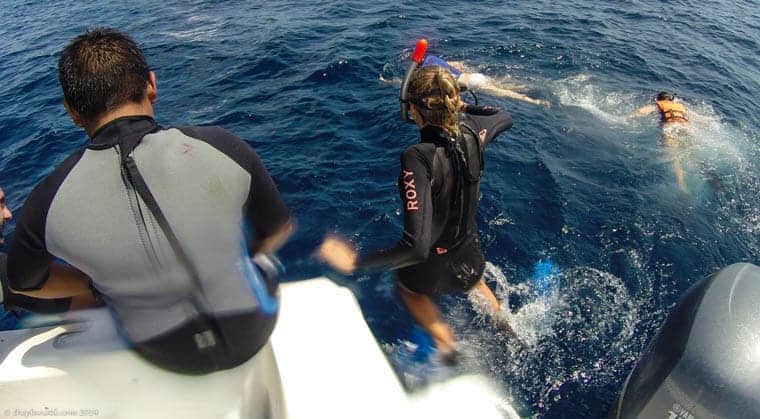
Upon arrival at the feeding spot for the whale sharks, I must admit, I was worried. There were many boats circling around the sharks, and it looked more like a circus than a quiet moment to swim with whale sharks in their natural habitat. Would we be bothering them to the point of hindering their feeding? Could it be detrimental for them to be chased by tourists?
Swim With Whale Sharks – The Experience Explained
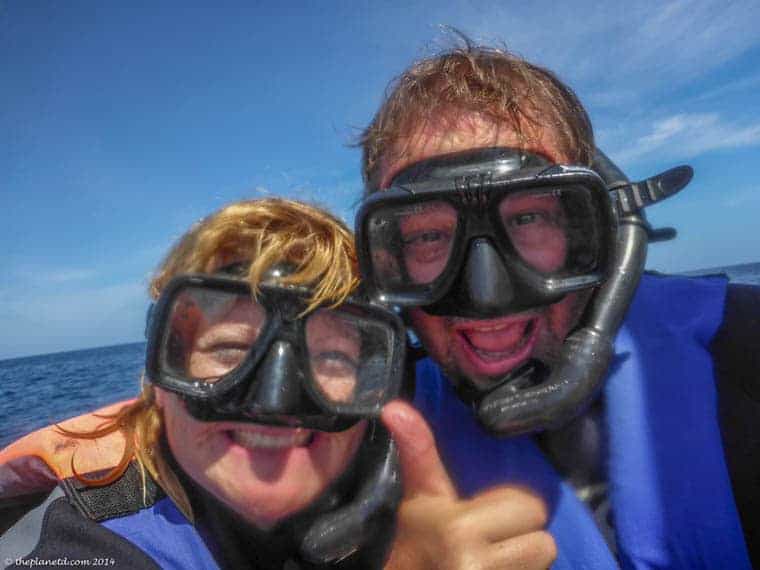
We faced a decision: Should we wear a wet suit or forego it? Additionally, should we wear a life jacket? We didn’t want to look out of place in a life jacket, wanting instead to fit in with the “cool kids” in the water. Ultimately, we chose to rent both the wet suit and life jacket.
What to Rent When Swimming with Whale Sharks in Mexico
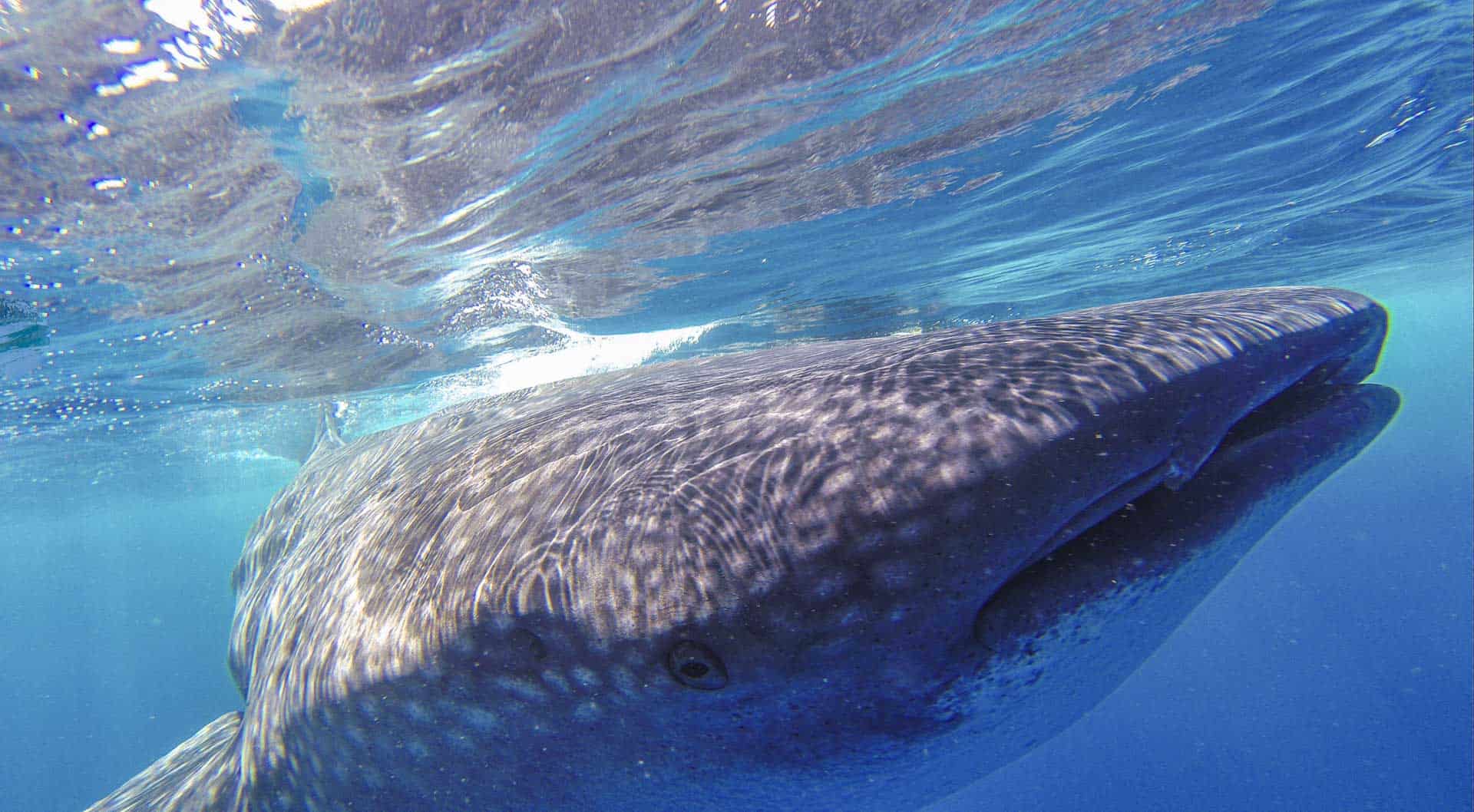
As someone prone to sunburn, having most of my body covered with a wetsuit was a smart choice. Sunscreen is prohibited when swimming with whale sharks since it contaminates the water; thus, I ensure to wear a long-sleeved shirt for sun protection. The wetsuit not only kept me warm but also protected my skin.
Whale sharks swim quickly, making it difficult for most people to keep up. Our guide, Alexandra, informed us that typically, snorkelers only last about 2-3 minutes in the water because they tire out quickly. By wearing a personal flotation device (PFD), we could stay in the water longer without exhausting ourselves.
We opted for the PFD
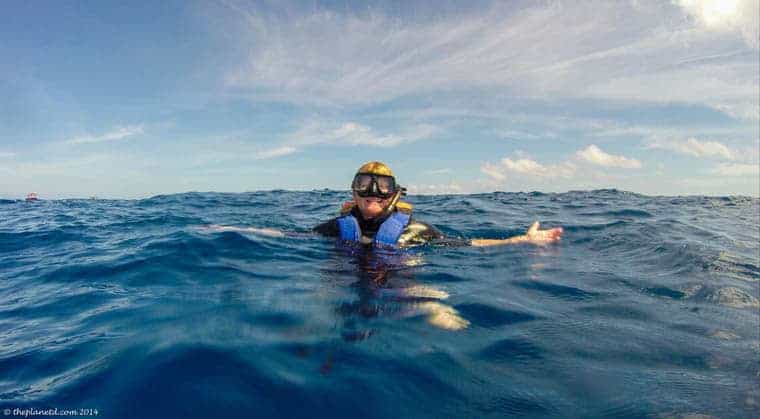
We entered the water in pairs, each with a guide—either Alexandra or our other guide, Pedro. This ensured a safe experience.
Upon jumping in, we put our heads down and swam with determination toward the front of the whale sharks. It was spectacular! They swam incredibly fast, and I was thankful for my life jacket.
Peaceful Under The Water
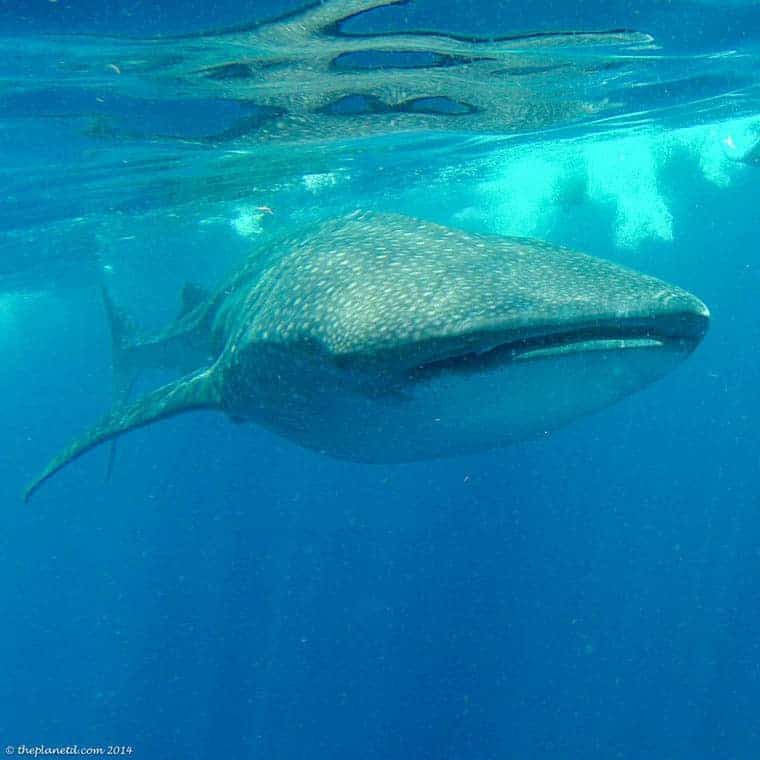
In the water with the whale sharks, my initial worries dissipated. It was peaceful underneath, and the whale sharks seemed indifferent to our presence. If you swam quietly alongside, the whale sharks allowed you to tag along for an extended period.
Swim Quietly and Be Calm
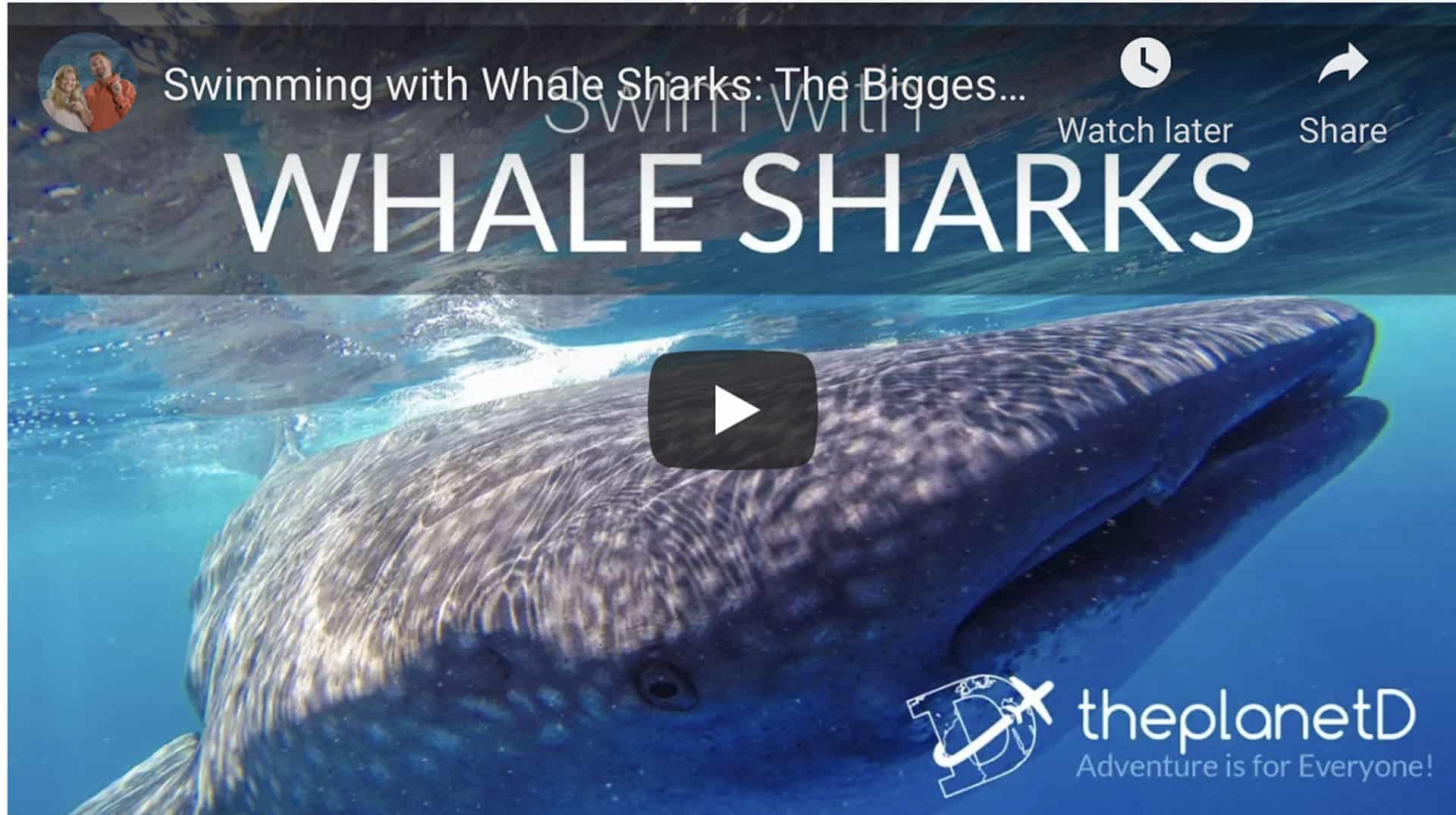
During one of our swims, I observed an overly enthusiastic snorkeler diving frantically for a closer look at the whale sharks. His chaotic movements annoyed both me and, evidently, the whale sharks, as they quickly dove deeper.
Nevertheless, I remained calm, staying at a safe distance. Dave and I consistently found ourselves alongside the whale sharks as they gracefully opened and closed their mouths, feeding on minute plankton. It’s incredible that such large creatures survive on tiny organisms, as they seem to spend their entire day eating.
Whale Sharks in Mexico – Final Thoughts
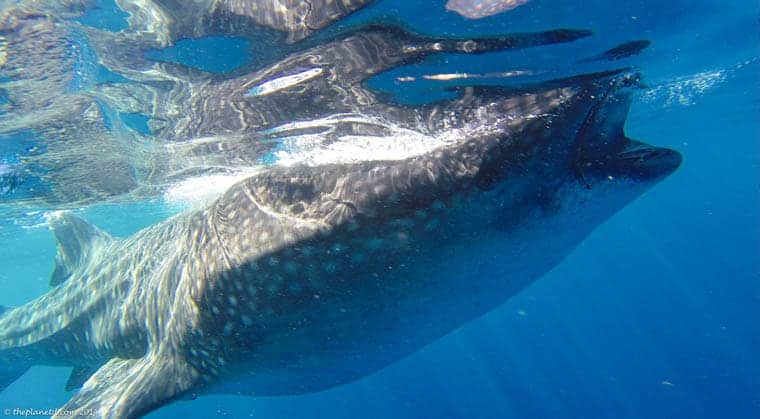
We enjoyed four different swims for about 10-15 minutes each.
During one remarkable moment, we jumped right in front of a whale shark swimming toward us with its mouth wide open. While we weren’t part of their food chain, witnessing such a giant mouth was an exhilarating experience. I swiftly swam out of its path!
Swimming with whale sharks was genuinely a once-in-a-lifetime experience. Seeing these gentle giants up close felt like gazing into the eyes of ancient creatures—wise, calm, and perceptive.
Ecotourism and Whale Shark Conservation in Mexico

I have concerns that swimming with whale sharks could disturb their natural behavior. However, I recognize the importance of ecotourism for wildlife conservation. Various shark species face threats from hunting, and these tours can help educate the public while sustaining their habitat.
When local enterprises see that preserving sharks can yield income, it creates a better chance for marine ecosystems to thrive. Many of our tours emphasized eco-tourism principles, ensuring that touching whale sharks is strictly prohibited and no sunscreen or lotions are allowed in the water.
We had attentive guides monitoring our actions, and they made it clear that any misconduct would have consequences. Our captain ensured everyone remained in view to avoid accidents involving the sharks or swimmers.
Tips for Swimming with Whale Sharks
- When the guides instruct you to jump in, do so immediately; they weren’t joking when they said whale sharks swim fast.
- If you hesitate, they’ll swim right past you.
- We recommend wearing that life jacket regardless of your swimming confidence.
- We spent longer swimming with the sharks than anyone else on our boat because we had the jackets on to keep us afloat.
